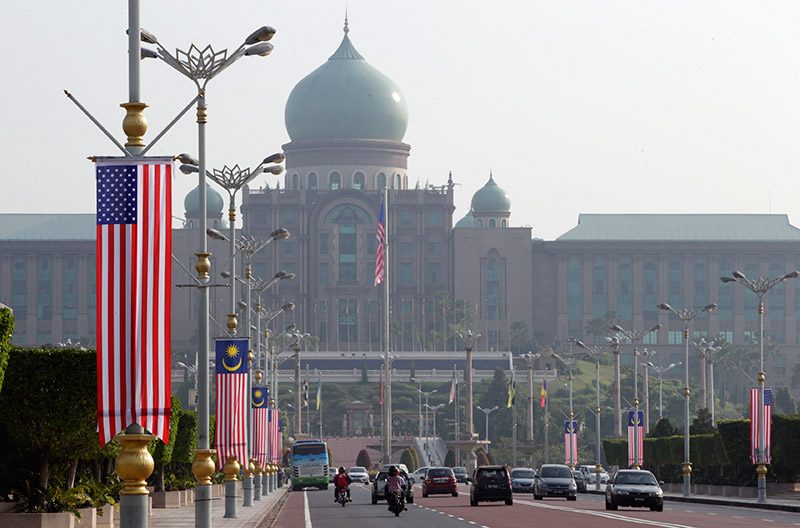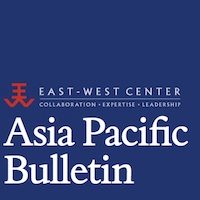SUMMARY
This is AI generated summarization, which may have errors. For context, always refer to the full article.

US President Barack Obama’s trip to Malaysia – April 26-28 – has both significance and promise beyond the tragedy of missing Malaysia Airlines flight MH370. As the situation continues to unfold, observers and authorities will  undoubtedly be divining lessons learned from this aviation disaster, no matter what caused the downing of the aircraft.
undoubtedly be divining lessons learned from this aviation disaster, no matter what caused the downing of the aircraft.
Malaysian investigators may need assistance in identifying some of the bureaucratic and security lapses associated with flight MH370 and few question that the Malaysian emergency management system warrants urgent attention and review. Diagnosed from afar, the missing aircraft was at first treated as a terrible incident that was likely to be resolved in a short time, rather than the lengthy crisis of national proportions that it has turned to be for Malaysian authorities. The United States has provided technical assistance to the search operation, but President Obama now has an opportunity to offer Malaysian Prime Minister Najib Razak the consultative assistance of leading US emergency management experts such as former FEMA director James Lee Witt. Following Hurricane Katrina, Washington overhauled the US disaster management system – this may now be necessary in Malaysia’s case.
Furthermore, international crisis procedures should have been invoked utilizing the Coordinating Center for Humanitarian Assistance on Disaster Management of the ten-nation Association of Southeast Asian Nations, or ASEAN. Malaysia’s ASEAN colleagues, however, should have in turn been more responsive by voluntarily providing assistance to their neighbor. The United States, which has provided extensive assistance to the ASEAN Secretariat, could now encourage Malaysia to take the lead in fashioning a more robust and responsive regional disaster management system with an emphasis on leadership and public information, and distribution management.
Other aspects of President Obama’s visit are no less important. China’s ongoing aggressive behavior in pressing its South China Sea (SCS) unilateral territorial claims is the political-security crisis du jour. The appearance of Chinese naval surface vessels and submarines on at least two occasions off Malaysian-claimed islands in the southern reaches of the SCS has sobered judgments in Kuala Lumpur. Combined with harsh – and, most Malaysians feel, unwarranted – criticism over the handling of the search for and information about flight MH370, attitudes are changing in Malaysia about accommodating China, as well as maintaining public silence on events in disputed areas.
President Obama’s visit to Malaysia – and subsequently to the Philippines – cannot resolve internal political and strategic policies made in Beijing, but the president can emphasize US support and steadfastness to the Malaysian leadership and people in seeking principled solutions based on international law and ASEAN centrality to maintain free and open sea lanes. President Obama should urge mutually productive natural resources development for the region as a whole, including China, and reinforce the need for crisis prevention on the basis of international comity as ASEAN has been attempting to do.
Bilaterally, there is an expanding agenda for Malaysia and the United States. Moving toward an upgraded relationship – some have mooted a Comprehensive Partnership a la Indonesia would be important to overcome the decades-long mutual trust deficit. Expanded people-to-people ties, facilitated by visa-free entry to the United States, would go a long way towards helping heal some of the popular misperceptions.
Creating opportunities for young entrepreneurs will foster a new generation of good will, and deeper trade and investment relations through the Trans-Pacific Partnership, or TPP, will further move both countries in a more positive direction. To some extent, the TPP has become a political lightning rod in Malaysia. Important issues such as the treatment under the TPP pact of Malaysia’s sovereign wealth institutions, government procurement, and access for professional service providers of TPP members are but three of the issues important to Malaysia. President Obama should listen carefully to Malaysian views and, if necessary, instruct US negotiators to be creative in phasing in the sought-after “gold standard” TPP provisions so that Malaysia is not left behind.
The United States-Malaysia security relationship is considered to be in good shape, and improving. Malaysian acquisitions of major US weapons systems could eventuate, but there are three areas where the United States has undisputed advantage: geo-spatial monitoring systems, predictive analytics, and command and control systems. Malaysia has effective conventional radar and other monitoring systems-which may have to be fine tuned and upgraded in light of flight MH370 – but it is the upper atmosphere monitoring systems and the analytics that Malaysia lacks.
One approach would be to create a genuine regional system, perhaps under ASEAN, but Malaysia can also develop these capabilities, and at affordable cost, to improve its “blue water” surveillance and cover gaps in land and sea border protection by taking advantage of proprietary systems already in the commercial marketplace. President Obama should commit the United States to foster geo-spatial development through the US Department of Defense and other commercial programs.
There are many other areas of great potential to leaven the discussions between President Obama and Prime Minister Najib. STEM (Science, Technology, Engineering, and Mathematics) education along with other exchange programs for young professionals – two areas of interest to the Malaysia-America Foundation – would pay great dividends to prepare Malaysia’s youth for a future in technology and knowledge industries. Mobilizing capital in both countries to focus on Malaysia’s development priorities will require creativity, but “lifting all boats” in Malaysia should be an objective that Washington can easily embrace.
Looking ahead to 2015 when Malaysia assumes the chair of ASEAN, Prime Minister Najib and President Obama can both pledge to work closely to achieve important strides in regional integration, market development, US investment in the region, and advancing common security interests. From relations with China to encouraging the greater economic and foreign policy involvement of India in Southeast Asia, the importance of ASEAN to the United States is growing exponentially, much greater than the sum of its parts.
Public expressions and impressions will play a large role in President Obama’s visit, the first by an American chief executive since Lyndon Baines Johnson in 1966. A presidential visit to Malaysia is long overdue, and conditions could not be more favorable for enlarging the bilateral relationship – and through it US relations with the ASEAN region – in a mutually respectful way. Looking beyond the tragic events of flight MH370 will be important to both countries for many years to come.
About the Author
Ambassador Alphonse F. La Porta is President of the Malaysia-America Foundation and a retired United States Foreign Service Officer. He can be contacted via email at a_laporta@yahoo.com. This was first published 24 April 2014.
The views expressed here are solely those of the author and not of any organization with which the author is affiliated.
The Asia Pacific Bulletin (APB) is produced by the East-West Center in Washington DC, designed to capture the essence of dialogue and debate on issues of concern in US-Asia relations. For comments/responses on APB issues or article submissions, please contact washington@eastwestcenter.org.
Add a comment
How does this make you feel?
There are no comments yet. Add your comment to start the conversation.